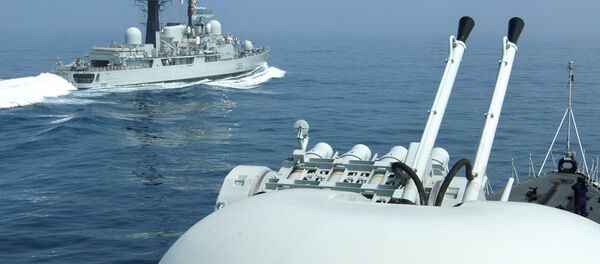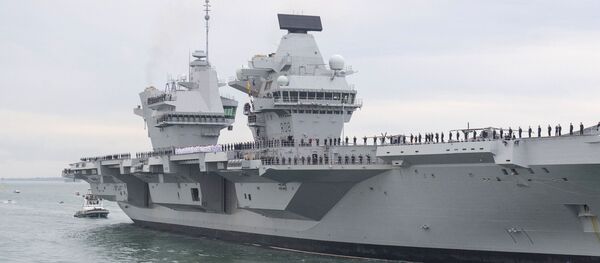Sputnik has discussed this with Bill Hayton, Associate Fellow at Chatham House's Asia Program and author of "The South China Sea: The Struggle for Power in Asia."
Sputnik: In your view then why is Britain taking such measures and what complications does it bring about in the South China Sea?
Bill Hayton: I think the British are clearly making a point here. There haven't been any Royal Navy ships in the Asia-Pacific region for four years before this one mainly because of defense cuts and things back home. We need to spend money on other things, and this is mainly because the UK is building a defense relationship with Japan, wants to have a global presence in the context of Brexit as a second reason.
But I think while they're there they're making a point that they want to stand up for international rules and that basically from the British point of view, from the general consensus that ships can sail wherever they want to sail and that includes through these disputed waters.
READ MORE: Beijing to Launch Satellite Network to Monitor South China Sea Traffic
Sputnik: China's always been very robust in its actions and its desire and command and control over the South China Sea, what benefits is Britain ultimately trying to reap? Is this some sort of collaboration with the United States?
Bill Hayton: Yes, I think that's part of it, but don't forget that in July last year three Chinese warships sailed through the English Channel through British territorial waters and the British didn't raise any objections when the Chinese did that. And so really the British are just doing in the South China Sea what China and Russia and every other country does in the UK and American territorial waters. So really it's kind of a bit rich for the Chinese to complain about this.
Sputnik: Why is Britain prioritizing a closer alliance with the US despite the controversial current administration instead of pursuing a trade deal?
The Chinese are much more concerned about the global role that London might play in its financial plans, whether the UK can help in its Belt and Road initiative, that kind of thing. I don't think they're going to get too upset about this. There is no doubt that China would like other states to just keep well away from the South China Sea so that China can do what it wants there.
READ MORE: Prof: China Can Create Conditions for Trade Talks Using S China Sea, DPRK Issues
Sputnik: Just give us a synopsis for the current situation in the South China Sea, it's obviously, one, it is interesting, and two, it is quite complex for the wider global audience. We've obviously got these islands, we've got the situation between China and Taiwan unraveling. Obviously, we got the Japanese situation. Obviously, freedom of movement along this strait as well, what's the general picture at the moment and what are the obstacles moving forward?
Bill Hayton: On the surface, things look pretty calm and stable. Nobody's fighting anybody. There are no ships bumping into one another as there have been in the past; underlying it all is the constant Chinese pressure for expansion and the other states that are claiming islands and sea zones in the sea are getting worried about this constant pressure against them, particularly, over questions of oil and gas rights.
On the Japanese front things have been warming up recently between China and Japan. So it's constantly moving and I think the Chinese know that they shouldn't try press all the buttons at the same time. So maybe things are dialing down a little bit with the Japanese, and maybe they can put more pressure on the Taiwanese. It's a constantly shifting situation.
The views and opinions expressed by Bill Hayton are those of the researcher and do not necessarily reflect those of Sputnik.





